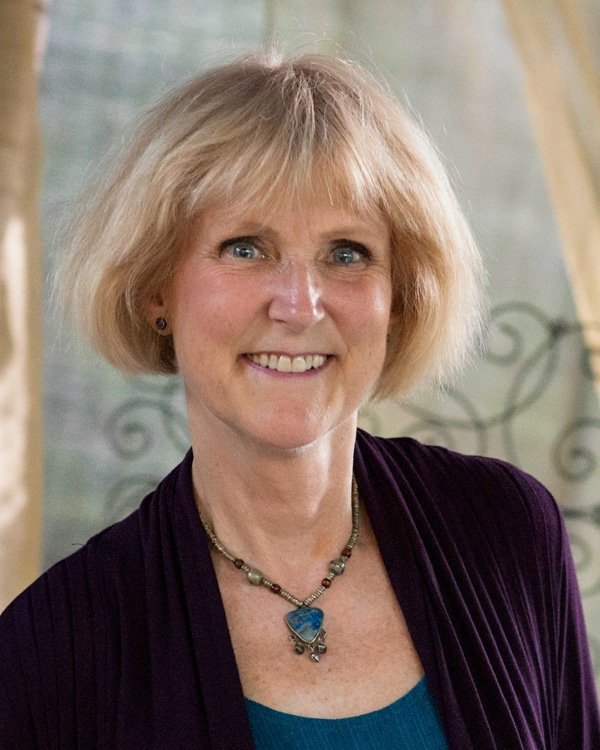We sat down with professional photographer, author of Gathering Strength: Conversations with Afghan Women, and lecturer Peggy Kelsey to discuss her important work in Afghanistan documenting the stories of the women she interviewed in her Afghan Women’s Project, her experiences in Afghanistan, advice she has for planning and completing a project of this size and scope, what she has learned in her travels as a woman in challenging and quickly changing countries and regions, and tips she has for women who wish to work and travel in places that are often not considered “safe.”
ArchaeoAdventures: In 2002, you began a project to photograph and document the stories of Afghan women to try and share a different narrative of women in Afghanistan than what the media usually portrays, especially at that time. What inspired you to begin this project and did you have any reservations on traveling and working in Afghanistan?
Peggy Kelsey: I attended a reception for 14 Afghan women who were visiting Austin, TX on a State Department tour in
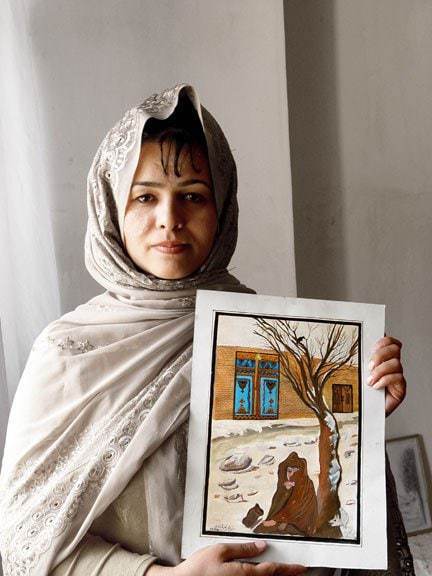
October, 2002. I was struck by how the Afghan women were much more like the American women in the room than their image in the media. Because I was a professional photographer and I’d traveled in Afghanistan and throughout the Middle East in the early and late 70s, it wasn’t such a leap for me to decide to go there and bring back a more diverse and nuanced view of Afghan women and their situations.
I had a lot more reservations about whether I had the ability to put together the project that would send me over there than I did about actually going. I saw being there as the easy part. But you have to remember that this was 2002/2003 when the situation was more hopeful and safer than it is now.
One thing I understood is that danger can be very local. You wouldn’t think twice about visiting Chicago, would you? And yet there are parts of Chicago that are not safe. Many times, when you ask around, you can get a sense of what’s dangerous and what’s not. Local people would be the best judge of this. Everything seems scarier from far away. In Afghanistan, I didn’t go to the areas of active fighting and I followed precautions, especially on my second trip when the likelihood of danger had risen.
AA: What surprised you the most working on your Afghan Women Project and collecting the women’s stories?
PK: When I began the project, I didn’t know for sure that I would find any women willing to talk with me and be photographed. I knew from past experience in the Middle East (Afghanistan is in South Asia, and the people are not Arabs, but the cultures, being Muslim, are similar in certain ways.) that many people don’t like being photographed. However, because I was always introduced by someone the local women trusted, they mostly allowed me to photograph them. What surprised me most was how eager they were to tell me their stories. I think that especially for middle and lower class women to have someone come all the way from America to bear witness to their lives was psychologically validating and affirming. Especially since there was a chance that their stories might get shared with a foreign audience.
AA: You’ve worked in countries that many people would view as dangerous places to visit, including Afghanistan. What advice do you have for women who are considering traveling or working in unstable and potentially dangerous countries and regions?
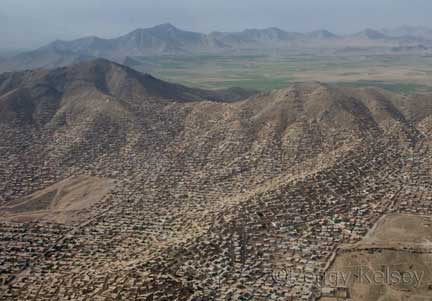
PK: Well, when we were living in Jordan and telling people that we were from Texas, they gasped and asked if we weren’t afraid to live there! This was in the 80s and everyone with a TV was watching Dallas. They thought all of America, and especially Texas, was like that. Our view of many places is similarly distorted.
The first thing to keep in mind is that wherever you go, most people are decent, kind and hospitable, often way more welcoming than Americans are, especially with strangers.
I would advise women to dress in a way that makes them less conspicuous and less sexy. Look around and see what the locals are wearing. Unless you see local women wearing strappy tops and shorts, don’t. Keep in mind that people all over the world see the worst of our films, ones where hyper-sexed, scantily clad women are ready to jump into someone’s bed at a moment’s notice. They understandably assume that all Western women are like this. Knowing this, I generally dressed conservatively. Doing this also gave me better rapport with local women. In Muslim-dominant countries, I wore a scarf and once I figured out how to keep it in place, found how liberating it is not to have to worry about how my hair looks.
AA: What was the biggest lesson you learned along the way?
PK: But I guess the biggest lesson is that from home, everywhere looks scary. Once you’re out in the world, that fear drops away. If you want to make a longer trip, it can be a good idea to go with a tour and then stay on afterwards. At that point, you will have gotten oriented and made some connections. I did this on my second Afghan trip. Nowadays there are tour companies that specialize in travel for women, older people, and other special interest groups, so if you can afford it, there is no reason not to take advantage of these and from that jumping off point, go on alone if you like.
AA: What are some travel tips and advice you can share that you found particularly helpful in keeping you safe and navigating through difficult regions?
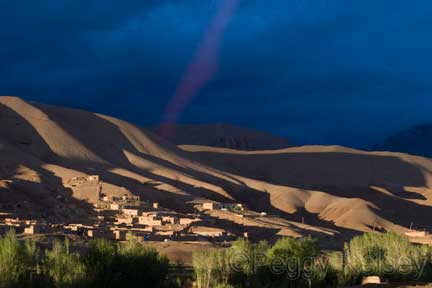
PK: Don’t give money to beggars since some of them are only working for their pimps, and it sends a bad message to those living on the margins, honestly trying to eke out a living. Those are the people you want to support. Buy things street kids and adults are selling, even if it’s not something you really want. You’re helping them earn an honest living and perhaps helping to supply the only meal they’ll get that day. Another good idea is to give money to local charities. They know how to reach the most needy and give them longer-lasting support.
Leave your valuables home and carry your money distributed around your body in several places. Always wear your passport inside your clothes. Even better, carry around a copy of your passport and keep your original locked in your hotel safe. Keep your camera tucked inside of a purse rather than a camera bag. Take your pictures quickly and return your camera to your bag.
If you feel in danger, look around for families or older men and go stand near them. They can’t physically protect you from a would-be attacker, but their moral authority may keep them at bay.
If you need help, don’t accept it from folks offering it to you, but seek it out on your own. The ones offering it will likely be hustlers. Ask several different local people for advice or about what to see, don’t just rely on one source.
AA: Did you find any advantages to being a woman traveler in Afghanistan and the Middle East?
PK: I got to go some places where men aren’t allowed, and other times I was treated as an honorary man. I wouldn’t have been able to interview the women I did had I been a man.
AA: What was your favorite area of Afghanistan?
PK: Bamian Province and Bande-Amir National Park. I got to stay with a family in the park because I was there in mid-May before the tourist season and the hotels were open. It was so beautiful and I hiked around alone for 4 days. I was especially appreciative because in 2010, for security reasons, I hadn’t been able to walk around Kabul much and in Bamian the air was so clean and pure compared to the capitol city.
AA: Your project became two exhibits, a book and you’ve spoken to many groups and organizations on Afghan women. You’ve also worked on a project telling the story of Iraqi women refugees in Jordan and in October your Change Your World courses launch. You are quite prolific and productive. For creatives, business owners, entrepreneurs and folks who have projects they are trying to complete, what advice do you have for them on how to be so productive? What have you personally found to be most useful in maximizing your time and the amount of work you complete?
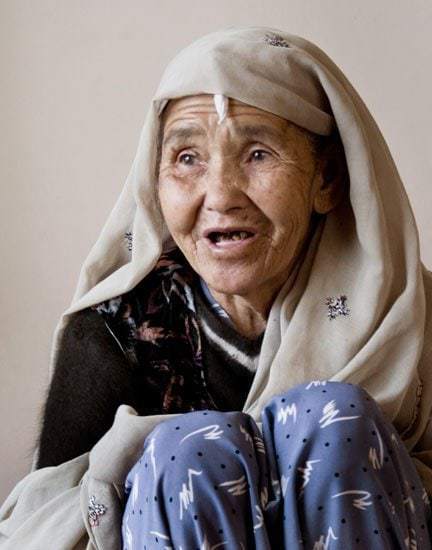
PK: I’ve been very lucky because I have been inspired—even driven—to do each of my projects. Every morning I wake eager to get to work. Well, almost every morning… But mostly when I’ve felt resistance to working, there was something else at play, something else I had to do or think about first. Sometimes, I found that what I was doing was not the optimal thing to do or the timing wasn’t right. I learned to look into my resistance.
Transcribing the interviews and writing Gathering Strength was a somewhat grueling labor of love. I made myself a commitment to work a certain number of hours each week and I kept track of my hours so that #1, I could feel a daily or weekly accomplishment when the final goal was so far off, and #2, so that I could take a break without feeling guilty for not working once my committed hours were done. In areas where I have a hard time keeping my self-commitments (such as exercise) I got an intention partner and we hold each others’ feet to the fire. My best friend became my timer which told me when to get up from my computer and move around. It kept track of my hours worked.
Procrastination is a huge issue for many people and I confronted it as well, especially while creating my online course on how to get control over it. As with everything else, my most effective tool was accountability. Using a timer, keeping a log, committing myself to daily and weekly goals, and rewarding myself for keeping my commitments all kept me on track.
AA: In October, you are launching an exciting online class called Mastering Procrastination. Can you tell us a little bit more about this class? Why did you decide to create Change your World? Can you give us a little sneak peak. What is one of your key tips on Mastering Procrastination?
PK: I decided to create the Change Your World courses because I had seen firsthand how taking on a project, i.e. creating The Afghan Women’s Project, had changed my understanding of what I was capable of and of my place in my own world and the world at large. I experienced how people now viewed me as someone “accomplished”. So, I’ve taken on a new mission to help others be successful in creating their own projects. After giving local workshops, I was humbled and honored to be part of my students’ successes.
I had had a difficult time creating The Afghan Women’s Project. My life coach provided instrumental assistance and I wouldn’t have succeeded without her guidance. In addition to accountability, she helped guide me through the necessary steps and made me see that I could, in fact, successfully carry out my project. She gave me tools to get me through the rough patches and helped me see that rejection and failure were also an important part of the process.
Once I got the inspiration to create this online course series, I went back to school (U of Washington, Seattle) to study online learning design. Mastering Procrastination is the first course in the series. Cultivating Resiliency will be available in Summer, 2016.
Mastering Procrastination is for those who are fed up with how procrastination is playing out in their lives and who are determined to do something about it. It’s easy to find books and articles full of tips and strategies, but consistent application is another issue.
What makes Mastering Procrastination unique is that it requires you to look into yourself to observe how and when you procrastinate by answering questions and writing journal exercises. It asks you to keep a log of your procrastination-redirects and in the end, to commit to improving by an amount that you choose for a time period of your choice. Mastering Procrastination looks at the issue from an Appreciative Inquiry viewpoint, so your first journal assignment has you look at when you DON’T procrastinate and we work from there. The course also addresses both chronic and occasional procrastinators, who succeed best with different approaches.
The second half of the course consists of a variety of strategies which, by that time, you will be better equipped to incorporate into your life in a lasting way. There is a sample video of Mastering Procrastination on my Facebook page, Change Your World Courses. (Please give the page a like.) You may subscribe to the course (www.cyw.academy) for free from October 20-27, 2015.
The strategy that best helped me stay accountable was the Pomodoro Technique. This strategy recommends working for 25 minutes with a 5 minute break. I prefer an hour of work to 10-15 minutes of doing other things. Using a timer is key. There are different techniques to help you get started depending on your personality type, but when I’m contemplating something I don’t want to do, just committing to work for 10 minutes does the trick. It’s short enough that I’m not afraid to jump in and it’s long enough that by the end of the time, I’m usually seduced into completing my hour.
To learn more about Peggy Kelsey’s project The Afghan Women’s Project, her book Gathering Strength: Conversations with Afghan Women, and her photography check out her website. And you can learn more about her Mastering Procrastination courses on her website Change Your World.
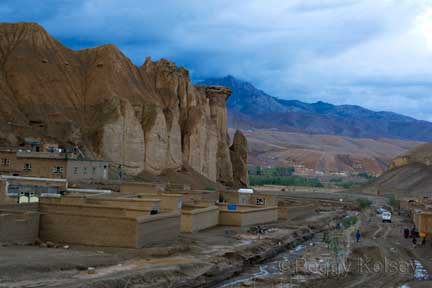
Peggy Kelsey, a professional photographer who lives in Austin, Texas, was inspired to travel to Afghanistan to 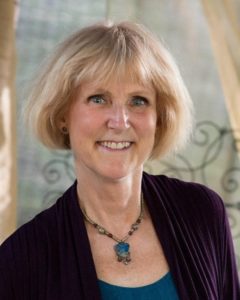 photograph and interview women there after meeting a group of 14 Afghan women who visited Austin in 2002. Shortly after first meeting those amazing women, she created the Afghan Women’s Project, traveled to Afghanistan in 2003 and again in 2010, gave hundreds of multi-media presentations at universities and other institutions across the US sharing the stories of the women she’d met, and wrote Gathering Strength: Conversations with Afghan Women. Peggy learned so much while creating The Afghan Women’s Project and its subsequent activities about how to set up and carry out such a project that she decided to share her insights with others in the form of online courses. Mastering Procrastination is the first in a series that will also include Cultivating Resiliency as well as courses on networking, project management, and establishing your project’s foundational elements.
photograph and interview women there after meeting a group of 14 Afghan women who visited Austin in 2002. Shortly after first meeting those amazing women, she created the Afghan Women’s Project, traveled to Afghanistan in 2003 and again in 2010, gave hundreds of multi-media presentations at universities and other institutions across the US sharing the stories of the women she’d met, and wrote Gathering Strength: Conversations with Afghan Women. Peggy learned so much while creating The Afghan Women’s Project and its subsequent activities about how to set up and carry out such a project that she decided to share her insights with others in the form of online courses. Mastering Procrastination is the first in a series that will also include Cultivating Resiliency as well as courses on networking, project management, and establishing your project’s foundational elements.

